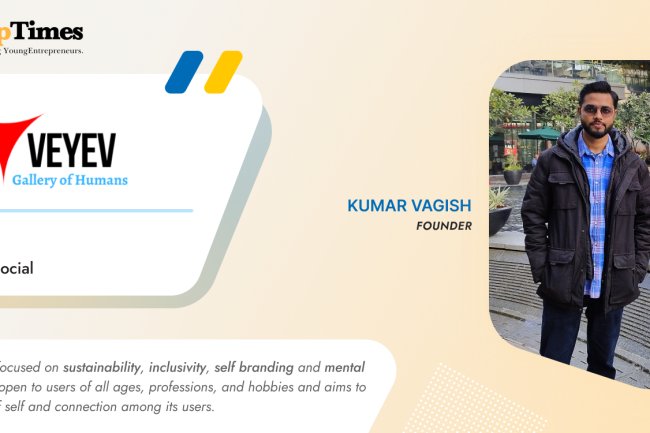The August Company: A sustainable change in the Fashion Industry
Vidhi Singhal is a passionate fashion enthusiast. One day a question arose in her mind: When almost everything’s price around us is getting higher day by day. Why are the clothes getting cheaper? The factors she identified are cheap labour, low-cost materials and huge volume.

“According to a study released in 2018, a universal plastic shopping bag was found at a depth of 36,000 feet depth in the ocean. It was the wake-up call we all needed.” Vidhi said in an interview. She quit her corporate job in 2017, to bring and be changed in the textile and fashion industry. She founded a sustainable fashion startup- The August Company, Bengaluru.
The range of cost of products is between Rs 990 and Rs 6390 as per the type of fabric, design, labour costs and other factors. The average price of garments is Rs 2590. Vidhi started this startup from scratch. She invested in equipment, machines, people, digital marketing, website, etc from her personal and family savings.
“The August Co. is apprehensive. We are cautious of what we make, our garments are designed to be timeless, good-quality non-plastic fabrics and trims/accessories. The stitching is strong enough to last a lifetime. The employees are given handsome salaries and various perks like health insurance, well-ventilated office space. We are mindful of our daily practices, make only 1 collection of about 25 garments every 2 months and we produce on order. We practice these things to move away from the world of fast fashion.” Vidhi Singhal wrote in her blog on the website of the company.
With the onset of the company, they restricted the use of polyester fabrics because each wash of a polyester garment releases millions of microfibres into the water bodies. Microfibres are tiny strands of plastic that are a hazard to the aquatic ecosystem. As a result, Vidhi announced an eco-conscious collection that is polyester and synthetic free.
The three pillars of sustainability of the August Company comprises social, economic and environmental. It has a workforce of 90% women. Fixed salary and fair wages are given to all the employees. They assure the products are eco-friendly and offer accessories with residual fabrics.
“We make classic, timeless, high-quality women’s wear with natural fibres only. The aim is that if our customer wants to wear our products 10 years down the line, she should be able to do so, provided they fit into it,” Vidhi said in an interview.
The August Company also assures high-quality standards of stitching in the in-house production of garments and accessories. Products are made of khadi, block print techniques, handloom ikats, tie and dye techniques, and cotton handloom fabrics. They pass the traditional handwoven and printed fabrics techniques to the next generation in families to keep this craft alive. They also design contemporary clothes as such, jackets, dresses, co-ord sets (two-piece coordinated outfits), etc to connect to the youth by using synthetic-free fabrics and adding contemporary designs.
“As we are a small brand, the logistics are a nightmare currently. But we try to work directly with the native artisans. We take fabrics from cooperatives, craft clusters, and those who work with these weavers throughout the year, and, in turn, help them with sourcing the yarn dyes and loom maintenance,” are words of Vidhi from an interview.
Apart from staff for merchandising, designing and marketing, the brand staff includes tailors, pattern-maker, helpers, and ironing resources to empower the weavers.
"The increment in sales means the increase in the numbers of fabrics made by these weavers. They get a higher wage which boosts their living style a wee and preserve the age and dignity of the craft. It motivates them to pass this delegate art to the next generation.” Vidhi shared.
They ensure they don’t make any addition to the garments that are never worn by making them in small batches, according to the real demand of the products in the market. They are one of the greatest examples of creating ‘Best Out of Waste’. They make beautiful fashion accessories like headbands, scrunchies, potli bags, etc. from left fabric scraps. At its in-house office towards its work to be a sustainable design brand, it makes packaging material out of the waste paper by reusing printed paper, glass bottles, discarded tea mugs, dispensed plastic and cellophane wrapping things.
Empowering Women
“We give fair wages to our employees and organise regular team lunches, where everyone in the company sits and eats out of banana leaves together. We believe such practice helps to formulate a social and equal justice system and eliminates the class difference.” She briefed.
The brand’s tailors are 100% female and are given fixed monthly salaries. It also gives statutory benefits, paid leaves, etc.
In the lockdown when the company was allowed to operate within permitted limits, the women were allowed to bring their children with them. The children used to play or study in the office boundaries.
Impact of the COVID-19 Pandemic
The company used to generate its revenue from a couple of eminent e-commerce and a few other networks. However, the pandemic hampered their functioning.
“The pandemic drove our entire company to a pause. In April 2020, we got special permission for a specified reopening for the production of masks. We made cotton masks, and our customers were satisfied. So, we continued with the permitted skeleton staff for some months'' She said.
As per the plans, Vidhi wishes to collaborate with diverse traditional fabrics. “We would admire to work with the weavers and craftsmen directly. Apart from aiming for global reach, we want to expand our company’s portfolio by adding categories like accessories and footwear.” She stated.













